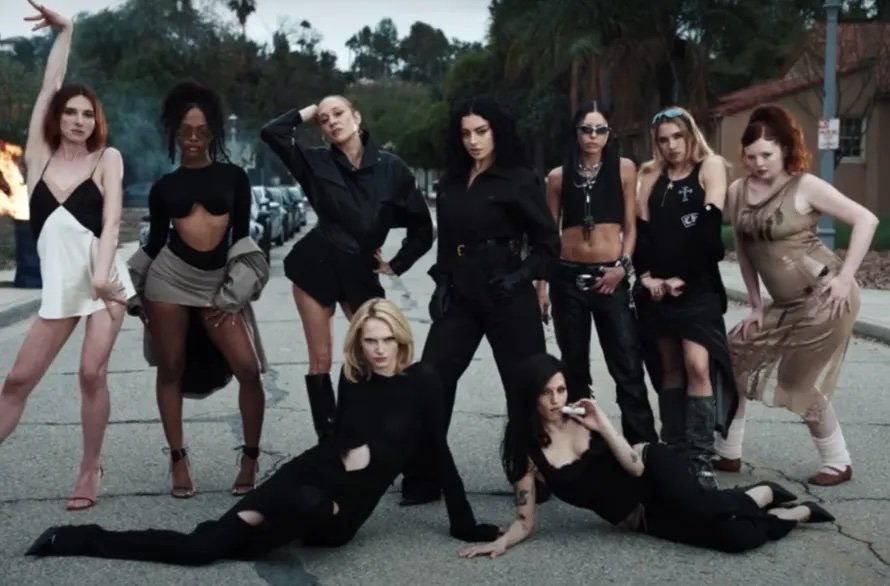What Has Happened To The Modern Day IT Girl?
Is the ‘it’ girl outdated?
August 24th, 2024 | Written by Faraday GambleLily Rose Depp
Since the advent of the ‘IT girl’, we’ve seen many women take on this title, influencing and defining styles. From Clara Bow and Audrey Hepburn to Paris Hilton and Kim Kardashian, the ‘it’ girl has defined decades, reflecting so much of society and in turn being reflected by the world we live in.
According to the Cambridge dictionary, an ‘it’ girl is a famous young woman who is known for going to lots of parties and social events. Yet, the title has grown into so much more than that, it’s become a definer of the times.
In our current society, one ruled by TikTok, algorithms and micro-celebrities, conversation and questions around who the current ‘it’ girl is abound. Some point to the likes of Charlie XCX with her introduction of ‘brat summer’, a trend so influential it has made its way into the American presidential campaign of the Democratic nominee, Kamala Harris. Others want a more authentic and timeless ‘it’ girl, such as Zendaya. But to name a modern ‘it’ girl, we must question whether such status is still achievable in such a fast-paced and technologically driven world, and furthermore, do we really need one?
The ‘it’ girl is inherently iconic, her name gets cemented in history, attracting a cult-like army of fans and seemingly defines what it is to be a desirable, beautiful and celebrated woman at the time of her status. We have witnessed ‘it’ girls of the past change and define fashion, from Jane Birkins laid-back chic and straw bags to the iconic ‘Rachel haircut’ that became a staple of 90s style.
Beyond fashion, the ‘it’ girl has been known to influence beauty and lifestyle trends, home decor and even diets-- it only takes one look at the heroin chic trend that dominated the 90s and the ‘it’ girl status of Kate Moss, to see the effect these women can have on societal ideals and standards.
This poses the question: is the ‘it’ girl outdated?
Society is striving to exist outside of single definable trends or styles, both within fashion and our beauty standards. Despite the influx of micro trends we have seen in recent years, multiple aesthetics exist in popularity simultaneously. It only takes one look at TikTok or Instagram to see that we are no longer as linear in our ideas of style and fashion as we once were.
Still from 365 music video
Furthermore, we are chucking out the notion of bodies as trends-- heroin chic is discussed like a disease to be avoided at all costs, and long gone are the days of explicit body shaming on the front of tabloid magazines and papers (although it would be wrong to claim we exist in a world where body shaming doesn't still happen). Thus, raising women to icon status based on their body or looks feels obsolete.
Beyond the changing societal standards, the introduction of social media into our everyday lives has allowed a world to develop in which influencers hold more power than the average celebrity. Social media personalities define trends and styles, and society looks to them both for advice and the latest lifestyle ideas. Trends are created on platforms as opposed to by individual people, and our slang heralds directly from social media and its creatives.
But it’s not just cultural stars and nepotism babies that reach this level of social media stardom. The moniker of ‘influencer’ is open to anyone with a TikTok account, a steady hand, and a simple understanding of editing videos. Societal acclaim as an ‘it’ girl is no longer exclusive-- users go viral overnight for the most bizarre reasons and gain masses of fans for something as simple as adding subtitles over images of Sylvanian families (I am however, a huge fan of Sylvanian family drama TikTok). This ‘it’ girl influencer is not reserved for the upper echelons of society or those who appear in magazines.
These new platforms have also transformed the fashion industry, attributing to the rise of a variety of aesthetics and styles, leaving us without one definable set of style rules or icons but rather a smorgasbord of fashion subcultures and pockets, all with definable styles, influencers and icons.
And if we can all be influencers, influencing subsections of the indefinable fashion industry, then what is the need for an ‘it’ girl?
The bigger question may be, ‘do we want It girls’?
Do we want to elevate young women to a pedestal, to follow them religiously and then discard them after a few years when a newer, shinier version comes along-- like children with the latest toys? It girls of the past have been loved, adored and battered by society, only to be thrown to the side when they lose their appeal or when they grow out of the allotted age range reserved for the It girl, or when they stop matching the criteria we set for them. Then we see the toll this takes on them: we see breakdowns, substance abuse, toxic relationships and even death. Whilst these may not be a direct effect of this harrowed title, the link is evident.
The it girl, as she has existed in the past, is a recipe for downfall and an unfair standard to hold women to. We no longer need someone to define our style or provide us with the juicy gossip in the tabloids. We need a variety of female role models who are strong, funny and most importantly, themselves. We need to celebrate women for their achievements, their power and their minds, as well as their wardrobes and social lives. And we should celebrate as many as we can, not just a handpicked selection we will ultimately toss to the side after a few years.




